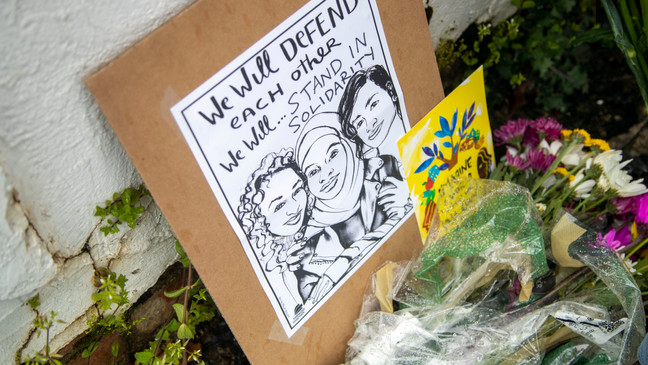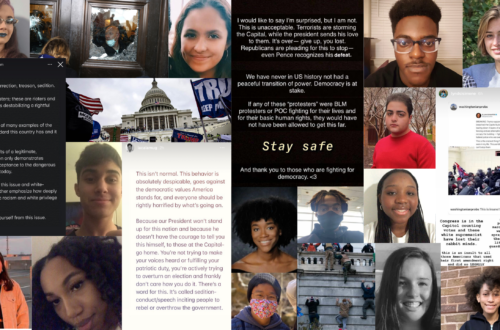A Deep Dive into the very Real Problems Women are Facing
Jacqueline Lutz
March is National Women’s History Month, a time that is meant to be set aside to honor the contributions women have made throughout American history, and recognize the hardships women face. However, the first weeks of March have been filled with pain, grief, and anger around the world.
On the night of March 3, Sarah Everard left her friend’s apartment in London to walk home. She followed safety precautions that many women are familiar with: walking on well-lit streets and being on the phone with someone. Everard didn’t make it home that night. She was kidnapped and murdered, allegedly by a Metropolitan Police officer in England named Wayne Couzens. This sparked outrage among women, young women in particular, in the United Kingdom, and their anger was felt around the world, with social media spreading the news about Everard’s death.
What is especially heartbreaking about Everard’s death is that women relate to the strategies she used to attempt to keep herself safe, and are familiar with the danger of simply being a woman out in public, especially after dark. From a young age, many girls are taught to hold keys between their knuckles as a way to protect themselves in case of attack; they are taught to share their location with friends and family; they are taught to walk with a buddy at night, or walk in well-lit parts of the street, or avoid isolated areas. And yet, nothing can shake the fear of having what happened to Sarah, happen to you.
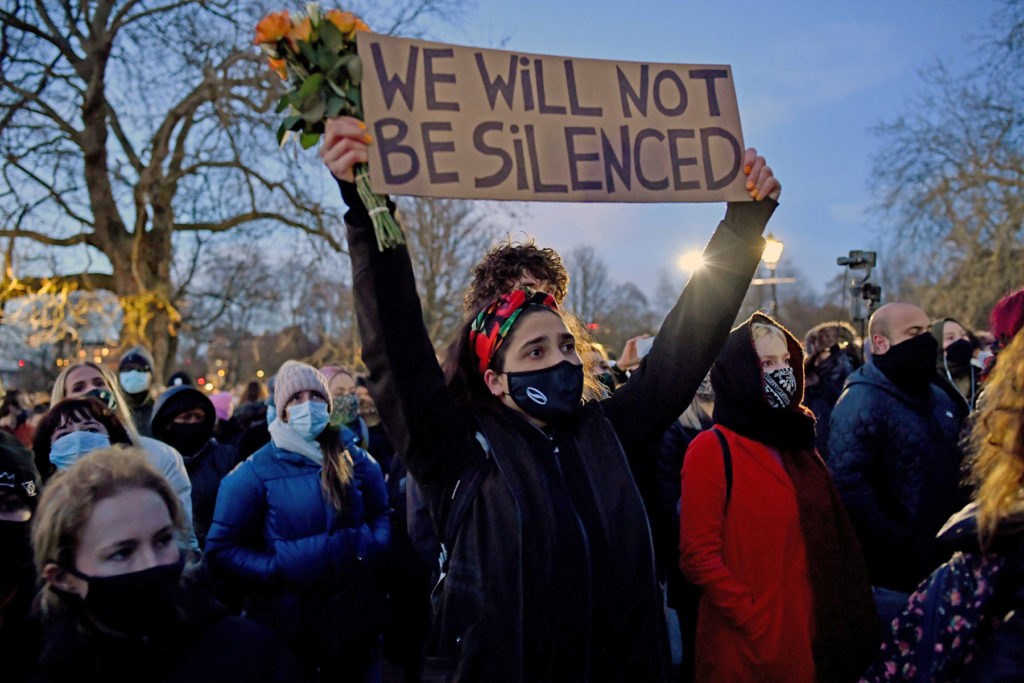
Women should not need to take an abundance of caution. They should be able to walk home after a night out, or ride in a subway or taxi at night, or walk down the street in the middle of the day without being catcalled, harassed, followed, or preyed upon.
While progress has been made to close the gap between men and women in representation in the workplace, politics, and other aspects of society, women still must take extra steps to catch up or to even just stay safe.
These “extra steps” for white women are mountains for women of color. While facing the patriarchy, women of color also have to face racism that is so heavily embedded into the world. On March 16, shootings at spas in Atlanta, Georgia killed eight people, six of them women of Asian descent. The shooter, Robert Aaron Long, claimed that his reasoning for targeting the spas was because he suffered from a “sex addiction” and wanted to remove the “temptation” of the spas. This lays bare the objectification of women as if they are objects that need to be taken out of the equation to cure his addiction, and is especially painful given the sexual stereotypes of Asian women that combine racism and sexism into harmful generalizations.
Racism towards Asians has also seen a sharp increase since the start of the pandemic, in part due to the use of phrases such as the “China Virus” or the “Kung Flu.” Racist harassments and attacks have left Asians in America fearful, and the shootings on March 16 are just another example, on a long list, of the hatefulness that has been directed towards Asians in the past year.
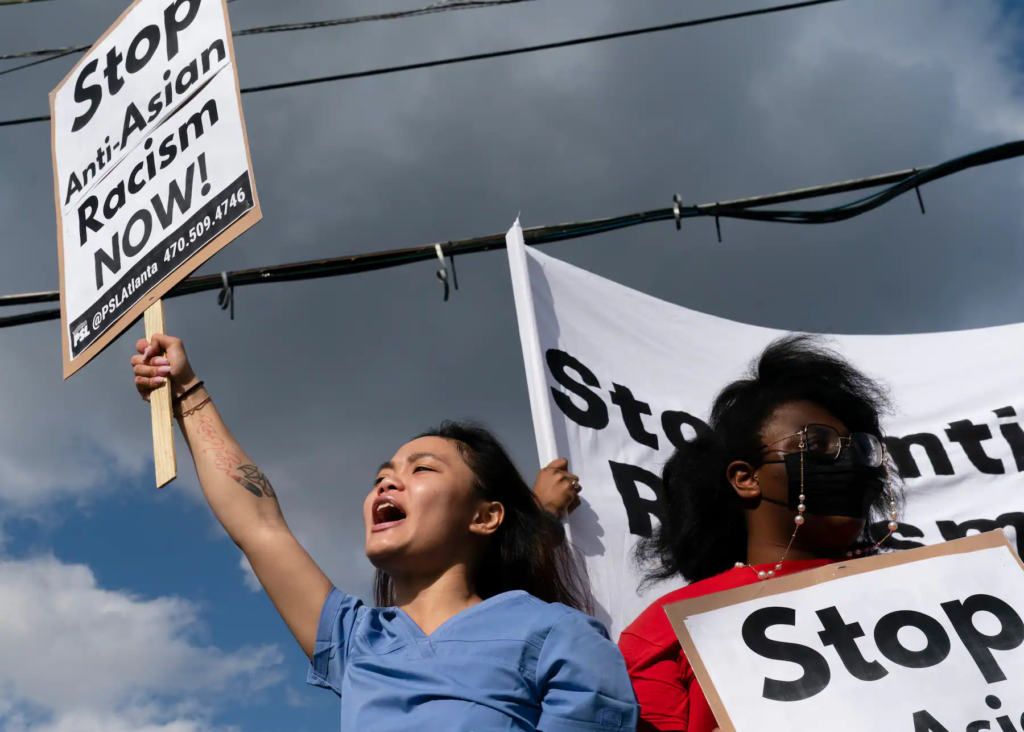
These events have sparked outrage on social media, and people have shared infographics specifically regarding sexual harassment and assault, and racism towards Asians. The posts radiate pain and grief and seem like an almost desperate attempt to get people to listen and learn.
The results of a study done by the United Nations Entity for Gender Equality and Empowerment of Women were also shared widely on social media. Published on March 10, it claimed that 97 percent of women between the ages of 18 and 24 in the United Kingdom have experienced some form of sexual harassment in public. While this study is not a comprehensive one, as it only surveyed a small sample of women compared to the millions living in the U.K., it does highlight an important issue: many women have, or know of someone who has, a story about being sexually assaulted or harassed.
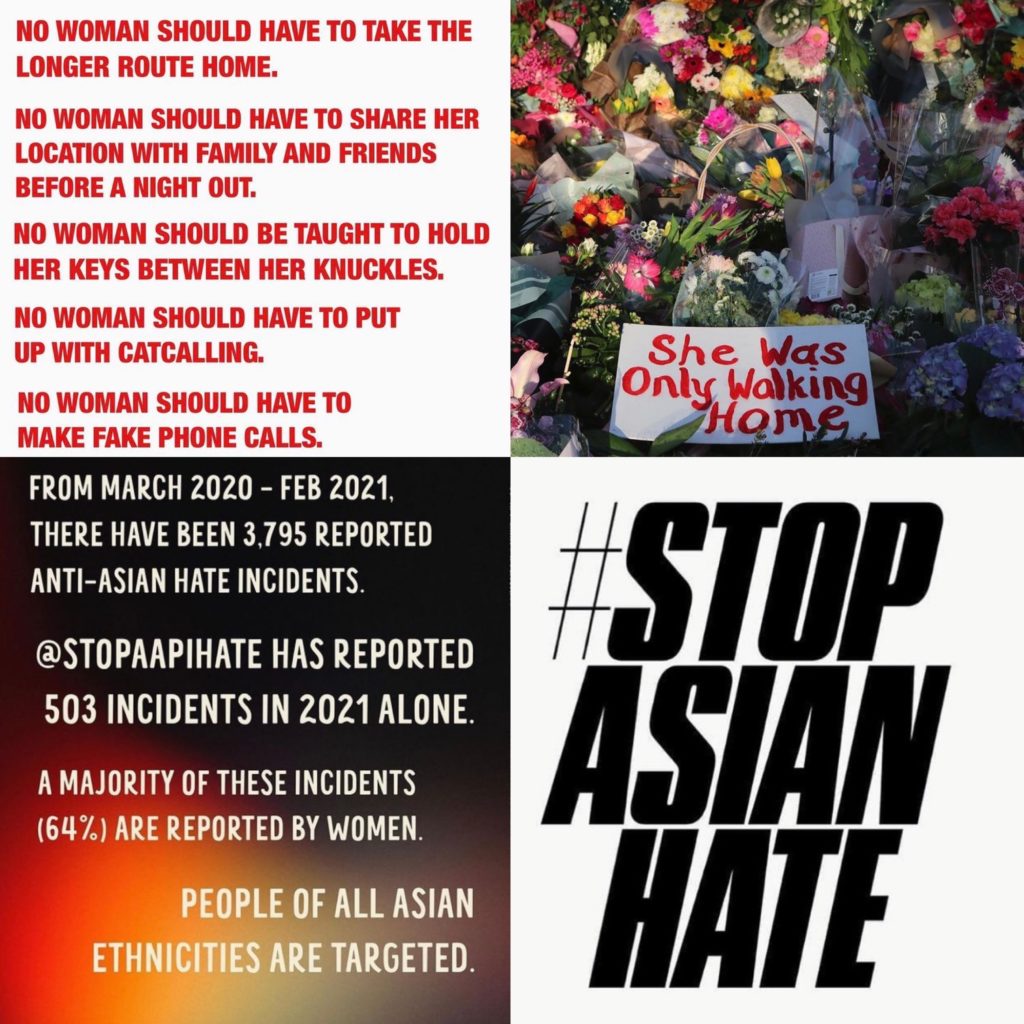
During National Women’s History Month, the idea is to share inspiring stories about women who have helped make our world and country a better place with their contributions and barrier-breaking. Instead, the stories being shared this month are painful reminders about the suffering that women, particularly women of color, face. No matter how much progress women have made, it still feels like we are walking along the darkly-lit street of patriarchy, with keys clenched tightly between our knuckles.

